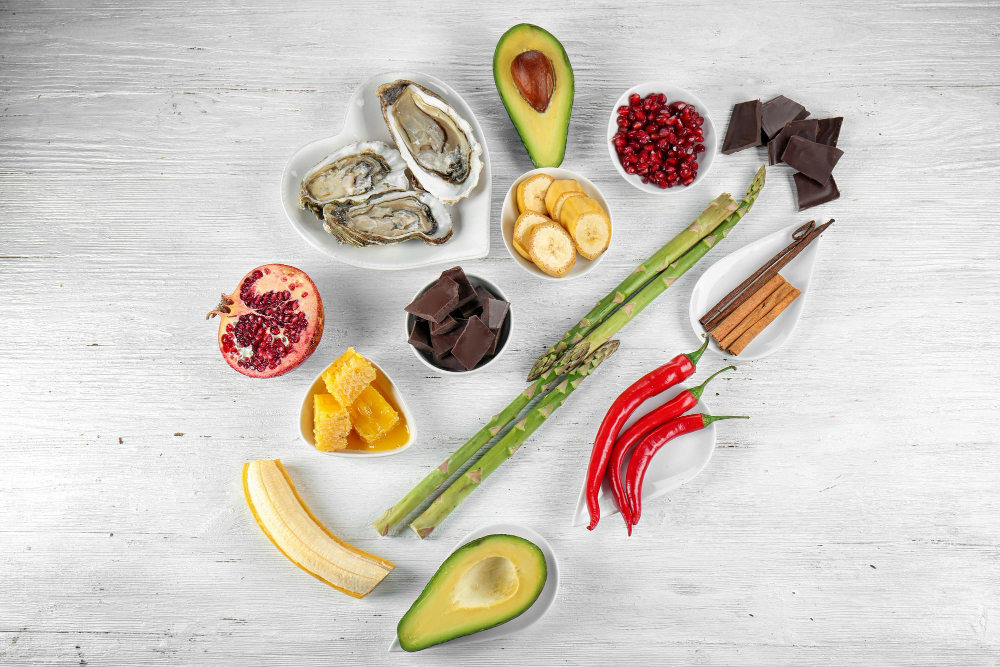Can a keto diet improve your testosterone levels?



Are you familiar with the keto diet? If you have searched for weight loss diets at all, you must have heard about ketogenic dieting. Firstly, let us understand its biology.
Your body uses sugars (carbohydrates) as fuel to produce energy. When you change your diet to take less sugars, your body eventually runs out of this fuel. Consequently, your body will then burn body fat and muscles to produce this fuel.
The idea of a keto diet is to reduce the intake of carbohydrates and to take more calories from proteins and fats. Eventually, this low-carb diet will mobilise your fat mass, and you will start moving toward your weight loss targets.
By restricting the supply of readymade fuels (sugars), you force your body to produce energy through fats and muscles. The production of energy from fats and proteins consumes more calories than energy production from sugars. Consequently, you start to lose calories.
The ketogenic diet also helps you reduce muscle mass, burn fat, maintain blood sugar levels, improve insulin sensitivity, reduce insulin resistance, and help you with certain metabolic diseases, e.g., type 1 diabetes. In addition, it is a recommended diet for cancer, acne, heart diseases and epilepsy, to name a few.
For males, testosterone is a steroid hormone produced by the testicles. Although it is produced throughout life, more testosterone is produced in an adult than in a child.
The testosterone levels are measured in the blood to assess sexual health. Although the level of this hormone is influenced by age, health and nutritional status, the total testosterone levels should fall in the normal range of 300-1000 nanograms per decilitre (ng/dL).
Despite significantly more of this hormone being produced in males, small amounts are also produced in females by the ovaries. The normal level of testosterone in females should be around 15 ng/dL. Some factors may cause this value to shift.
Besides ovaries and testes, small amounts of this hormone are also produced in the adrenal gland in both genders.
To understand the chemistry between a keto diet and testosterone levels, you must understand the nature of testosterone present in your blood.
It could be free testosterone, i.e., the testosterone, which is not attached to any blood proteins, or it could be bound testosterone, i.e., the testosterone, which is bound to your blood proteins.
The bound testosterone could be attached to albumin or another protein called sex hormone-binding globulin (SHBG). The attachment with albumin is weak and can break easily. So, both free and albumin-bound testosterone is bioavailable for your body.
It should be noted that free testosterone counts for only 2-3% of the total testosterone. The rest is bound nearly equally with albumin and SHBG.
Testosterone helps the body immensely. It influences sperm production in the body. Its normal level is extremely critical for your sex drive. A low testosterone level would mean reduced sexual function and less sperm production.
It is also essential for the reproductive health of women. The importance of testosterone is not limited to sex. It is involved in following essential functions in the body.
It decides the distribution of fat in your body.
It influences your muscle mass, muscular strength and body weight. It stimulates muscle cells and increases their strength.
It has a role in the generation of red blood cells.
It is involved in the maintenance and health of bones.
It is essential for the hair. If you are experiencing hair loss problems, your testosterone levels are probably falling.
It influences your behaviour too. It drives a spirit of competition and aggression. A person disinterested in life goals may have a problem with his testosterone.
So, you cannot underestimate the importance of testosterone!
To see our range of testosterone supplements and support, click here.
The testosterone test is straightforward. First, the technician will need a small amount of blood from your vein. The test is usually done in the early morning when the hormones are generally in the highest concentration.
To see our Testosterone Test, click here.
Given the importance of testosterone levels, you must be worried about any factor influencing it. But how can a low-carb keto diet affect testosterone levels?
The keto diet influences hormone levels. It does this by changing the body composition. For example, a low-calorie keto diet will cause your body to lose weight by mobilising body fats and proteins.
Fat loss can boost hormone levels as obese people are more prone to functional hypogonadism (FT). The FH will cause decreased testosterone production.
Besides obesity, the FT leading to low T could be due to diabetes and other metabolic problems, which are, in some way or the other, related to your diet.
So, you can boost your testosterone production by lowering your weight, and a ketogenic diet can help you in this process. In addition, it was suggested by early research that men on a ketogenic diet indeed experienced increased testosterone levels.
The dietary carbohydrate restriction can help to boost testosterone. A keto diet aims to restrict daily carbohydrate intake to not more than 50 grams.
Following a keto diet is not very difficult for healthy men and women because many delicious foods fall in the category of keto. A low-carb keto diet for at least four weeks is recommended. The following low-carb foods have the potential to boost T levels.

Seafood
Poultry products, e.g., eggs and chicken
Dairy products, e.g., cheese, Greek yoghurt, milk cream, plant-based milk
Leafy greens are a valuable treasure of antioxidants, vitamins and minerals. These include turnips, tomatoes, eggplant, cabbage, cauliflower, beans, mushrooms, asparagus, cucumber, broccoli etc... Use a lot of leafy green vegetables to reap their potential benefits.
High-fat vegetables, e.g., olives and avocado
Avoid starchy and carbohydrate-rich vegetables, e.g., sweet potatoes, beet, corn etc...
Seeds and nuts
Berries
Dark chocolate
Olive oil: Researchers at the University of Casablanca found that people using extra virgin olive oil experienced a 20% boost in T levels within two weeks.
Sugar-free tea and coffee
Your hormonal profiles are essential for your health. Although healthy fats are necessary for your body, excessive fat deposition can be problematic. Testosterone production is depressed in overweight men. After identifying the problem through blood tests, you can use calorie restriction through a keto diet to lose weight. It will also boost your testosterone levels.
To learn more about our Free Testosterone Test, click here.
For a full range of blood tests and medications, visit our Welzo Online Pharmacy Page. For more details, click here.








Plus get the inside scoop on our latest content and updates in our monthly newsletter.